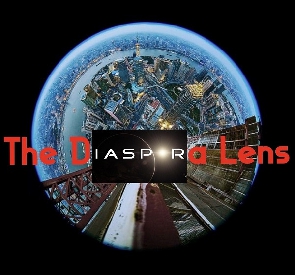Introducing "The Diaspora Lens" by Ghadym. A Comparison of Ghanaians in the Diaspora and Ghana, covering religion, politics, culture, and socio-economics.
Welcome to "The Diaspora Lens," an enlightening news article series brought to you by Ghadym - Germany.
Our focus is on Ghanaians living in the Diaspora and their experiences compared to life in Ghana. We explore various aspects of life, from discussing governmental policies adopted in Diasporan countries that could benefit Ghana, to analyzing political parties and their ruling systems in comparison to their counterparts in Ghana.
Additionally, we delve into the study of different governing systems such as socialism, communism, democracy, autocracy, and dictatorship. Our articles will also touch upon trending stories that polarize people and cause social upheaval, as well as social issues like the disparities in social systems between Diasporans and those in Ghana.
We will explore topics ranging from parenting, divorce, dating, religion, marriage, diversity, racism, and many others.
Introducing the first episode of the series "This You Must Know." In this episode, we dedicate our work to Yeshua the King, who embodied humility and refused to submit to injustice and oppression. As the voice of the voiceless, Yeshua came to free the captives and taught us how to do the same for others.
Growing up in Africa, we have experienced the realities of life that make up the resilient African spirit. Therefore we are through this article honoring all our heroes and heroines, past and present, who fought for the freedom of Africa, from Dr. Kwame Nkrumah of Ghana to Paul Kagami in Rwanda. Osagyefo, meaning the Saviour, as we call Dr. Kwame Nkrumah of Ghana, is favored for his
incredible role in the fight for independence on 6th March 1957. One of his notable quotes is, "I am not an African because I was born in Africa but because Africa was born in me."By this, we urge all of us to allow the rebirthing of Africa in us.
This quote reflects Nkrumah's strong sense of African identity and his belief in the collective heritage and destiny of the African people. It accentuates the idea that being African is not merely a matter of one's geography but a deep connection to the continent and its history. Leaders are known by what they say more than their actions and Kagame has gained admiration by putting Rwanda in the limelight as a model system and society. He also says: "Leadership is not about being in charge. It is about taking care of those in your charge".
This quote emphasizes and demonstrates responsible leadership practices that prioritize the well-being and needs of the people he serves. It underlines the belief that true leadership is not simply about maintaining power or authority but rather about serving the interests of the people who gave you the mandate and guaranteeing their welfare.
These news articles will take readers back in time regarding politics across Africa. Our past leaders emphasized self-determination, social justice, and economic empowerment for the African people in their leadership styles, warranting the attention of the youth today.
Figures such as Libya's Muammar al-Gaddafi, Congo's Patrice Lumumba, Ethiopia's Haile Selassie, Tanzania's Julius Nyerere, and Kenya's Jomo Kenyatta have challenged systems such as neocolonialism and replaced them with self-government that drives African's development.
Let us now take a look at the democracy of Ghana during its Fourth Republic. The Fourth Republic was founded by Flt. Lieutenant Jerry John Rawlings. The military coup in 1981 that overthrew Hilla Lehman's government made Rawlings famous at a young age. He led Ghana's Transitional National Defense Council (PNDC), a military government, until 1992 when it became a multi-party democracy. Rawlings gradually gained respect in Ghana and beyond despite his controversial beginnings in a coup.
Ghana returned to democratic rule and we have since seen the interchange of governance between the NDC and the NPP. Over the years, the country has descended into a very polarized democratic system that does not really help the poor masses. Despite political promises, the country has remained economically dependent on the West, and heavily indebted.
At least our brothers and sisters living here in the Diaspora can attest to the numerous social intervention programs and amenities our families back home are deprived of. They have access to the most necessities in modern society, for instance, education, food, housing, and health care. Governments in the Diaspora are establishing measures to meet these needs for the unemployed and those in difficult situations.
Germany, in particular, recognizes the importance of quality education for its young people and attaches great importance to education and vocational training to equip young people with skills for use in the labor market.
The double education system, which combines face-to-face classes and practical training, allows students to gain hands-on experience. In addition, programs such as the “Youth Guarantee” ensure that all young people below 25 years receive further education, training, and employment offers.
Similarly, the federal government provides various youth welfare assistance for the development of young people. These services include counseling, recreational activities, community centers, and youth clubs. They promote social integration, and personal growth, and help address issues such as substance abuse and crime.
Food for Thought!
What has been the impact of the National Youth Authority on the lives of the average Ghanaian Youth?
What do you expect from your leaders as a young person?
If you were given the power to govern our dear country, what would you focus on?
"The Diaspora Lens" seeks to provide you, our readers, with a captivating and reader-friendly exploration of the lives and experiences of Ghanaians in the Diaspora compared to Ghana. Stay tuned for more thought-provoking articles in this series.
Diaspora News of Thursday, 1 June 2023
Source: Ghana Diaspora Youth Movement

















